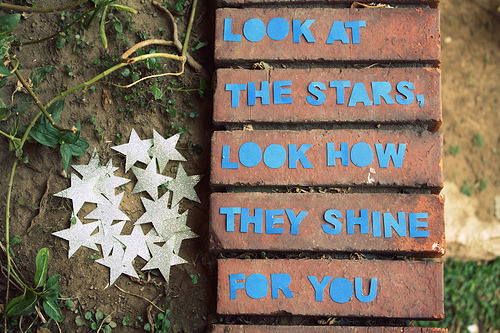After reading this wacky post "Encouraging Teachers to use Technology" I had to respond with a hearty congratulations! After all, this article highlights many of the things we so diligently try to avoid when introducing anything unknown to people; rewards, punishment, fear. So let's think about it for a moment; how could you make sure that no one wants to ever integrate technology:
- Outdated equipment - with scrunched school budgets and schools falling into disrepair, this is a common culprit. Who wants to use technology when the computer looks like an extra from the original 90210? Well some people make do and even do great things but to get more people to truly integrate you may have to invest a little bit of money.
- Listening sessions only on how to use it. Teachers love to talk and boy when explaining technology and how cool it is, we can get rather winded. How about letting people try it, after all, my 2 year old didn't ask for a manual with my iPad, she simply pushed some buttons and now she is pretty adept and very eager.
- Forcing people to use technology. Nothing like a good punishment session if you don't integrate technology. I know how stubborn I am and even if something seems really amazing, if you tell me I have to put it in my classroom most of the time I will resent it. Call me stupid but this resistance may be part of human nature.
- Telling people how cool it is that this one teacher is using technology. This is another variation on the forcing people to use it. Sure that teacher may be doing some really cool things with it, but that doesn't mean others need to. In fact, I think the more you tell others about all the cool things, the more some people will resist. It is all in the delivery of the message.
- Not asking the people. This happens all the time, there is extra money and someone smart spends it all on new technology without asking the people who are going to use it whether it is wanted or not. Surprise, here's another thing you didn't want. Often teachers would love more technology in their classroom, perhaps just not the same as what other people want. I for one don't particularly want a Smartboard but waive some iPads in front of me and I will be forever grateful. Ask your recipients, give them ownership, and it will be much more welcomed.
So to not be to negative, here are my suggestions for how to encourage more technology use:
- Lead the way through informal conversations. I love tech and I spend a lot of time searching out new things for my students and yet I don't tell a lot of people about it. Why? Because they may not be interested, however, if someone shows a little bit of interest, I will gladly show, talk, and teach them about it. This way it is their choice to learn not me burdening them.
- Give us time. More tech means more time needed to investigate and play. This year my school received 8 new Flip's from the PTO and it wasn't until we had time to play with them through a PD session that they started getting used. Don't just tell people about it, show them and let them do the doing.
- Have your students be teachers. My students are the best proof of good tech usage and they will gladly show you just how cool something is (vice versa they will tell me when something sucks). They have turned into the best ambassadors for why teachers should integrate tech into their classroom and for that I am ever grateful. Give them a voice and watch them find an audience.
- Emphasize integration, not tech for tech's sake. I don't have student computers in my classroom so that my students can type their papers on them, that is just an added benefit. Rather these computers are our research stations, connection makers, and overall learning centrals. We use them when it feels natural or when it is necessary, not because we have to, but because they fit into what we are doing.
What am I missing? How does great tech integration get encouraged in your schools?







